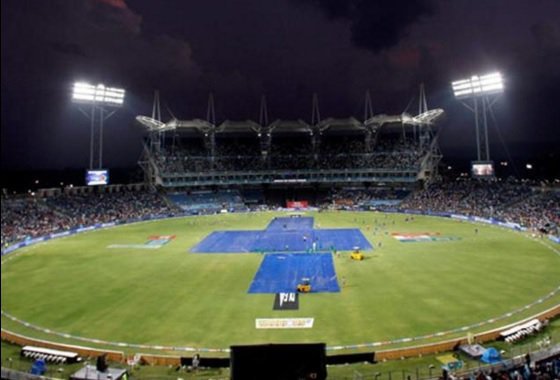“Are people more important or IPL?” the Bombay high court asked in its now famous slam down of the Board of Control for Cricket in India (BCCI) over water wastage during IPL last week. The bench was hearing a PIL filed by an NGO against using gallons of water to prepare pitches.
This question, under any circumstances, merits just one answer: People. Lives are more important than entertainment, of course. But then, the question was rhetorical, and based on false binaries.
And this is exactly wherein lies the problem when we demonise IPL for the water crisis in Maharashtra. Yes, there are a lot of things to hate about the BCCI, but making the drought crisis a people versus IPL issue is just ridiculous.

- IPL neither created the crisis, nor is worsening it
The drought in Maharashtra is a recurring problem which has deep roots. Recent investigations and analysis brought to the fore a culprit far bigger than IPL: sugarcane. If one IPL match is estimated to consume some 0.3 million litres of water, a tonne of sugarcane production uses 2 million litres of water. A report by South Asia Network on Dams, Rivers and People (SANDRP), while studying the 2012-13 drought in Maharashtra, called it a man-made disaster, blaming it on water management, corruption, water-intensive cropping patterns, absence of a long-term view to manage water and drought. It even slammed the government for turning a blind eye to the water-guzzling sugar and wine factories.
1 more train with5Lakh lit of water leaves fromMiraj to bring relief in #drought affectedLatur.More efforts underwayhttps://t.co/QaLRMnuTNy
— Devendra Fadnavis (@Dev_Fadnavis) April 13, 2016
- Why the onus on IPL, and why all of a sudden?
In theory, it does seem fair that no one should “waste” water when your fellow state residents, just a few kilometres away, are facing acute water shortage. But why the onus on IPL alone? Doesn’t the sensitivity, or should we say, moral responsibility, lie with every Mumbaite, who should bend backwards and send water to where is it needed? By the civic body’s own admission, Mumbai “wastes” some 900 million litre of water daily! But we haven’t heard of any talk of voluntary or mandatory water cuts in a mega city like Mumbai, isn’t it?
- Scapegoating the rich is our idea of activism
Remember when an Uber driver was accused of raping a woman passenger? The emotional outburst against it was such that we, even if temporarily, got the taxi service banned. Without thinking if the women are any better-off or more secure without such a service in place. Even the outrage against the World Culture Festival in Delhi that threatened to spoil Yamuna floodplains, in some part, spoke of this attitude: Sleep over a problem for long, but go gunning after the powerful if they attempt to make use of it. The list of such activism in India is really long. We blame, we ban, we debate, but we hardly suggest or create a solution. If IPL going out of Maharashtra could help the drought-hit, the state wouldn’t be reeling under it every passing year.

- IPL must compensate, and so must the rest of India
Yes, IPL must be more sensitive and sensible in using water for matches, and the BCCI’s initial offers for using non-potable water for pitches, monetary compensation and donation of treated water made some sense. But the high court on Wednesday simply played symbolism when it directed the BCCI to shift all the IPL matches out of state after April 30, considering the plight of the drought-hit. This, when the rest of the cash-rich, sprawling industries are conveniently kept out of the whole debate. They must compensate and judicially use the resources in their day-to-day functioning too.
And no, symbolic gesture like Anand Mahindra’s to shut down the water fountain in his Mumbai office are simply not enough.

















